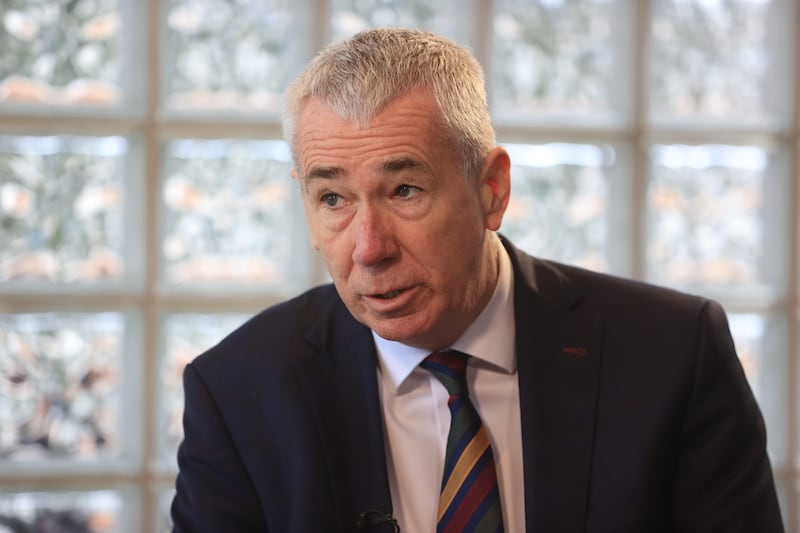IT was clear even before he became prime minister that Boris Johnson's contributions to politics should be approached with a high degree of caution, if not outright scepticism.
This has especially proved to be the case with regards to Northern Ireland and the Brexit deal he negotiated with the European Union.
Mr Johnson promised that there would be no additional paperwork or checks for trade across the Irish Sea, only to sign a deal that did exactly the opposite.
Since then, Mr Johnson has insisted, often in the same sentence, that what almost everyone regards as, in effect, a border at the north's ports does not in fact exist, while blaming the EU for the onerous checks conducted at a regulatory frontier he pledged would not happen.
This Alison in Wonderland denial of reality has caused intense frustration, not least to those in the unionist and loyalist community who have been encouraged to believe that the north's constitutional position is somehow under threat.
In his latest unhelpful intervention, Mr Johnson said he would "have to take further steps" if the UK and EU couldn't reach agreement on difficulties related to the Northern Ireland Protocol.
"What we're doing is removing what I think of as the unnecessary protuberances and barriers that have grown up and we're getting the barnacles off the thing and sandpapering it into shape," he said, speaking to BBC Spotlight.
Colourful talk of protuberances, barnacles and sandpapering will not quell the discontent focused on the protocol.
Thankfully, the violence that erupted around Easter has been dampened, for which community leaders, sports clubs, churches, youth workers, statutory services, the police and others deserve enormous credit.
Care must be taken not to create circumstances which allow trouble to flare again. This places a particular responsibility on those organising protests, including no-notice parades, against the protocol.
These have so far included prominent loyalist Jamie Bryson addressing a gathering outside Newtownards PSNI station from atop a wheelie bin. A small Loyalist Communities Council protest in Belfast was itself almost outnumbered by a one-man counter-protest.
Though the PSNI has a duty to fully investigate any breaches of parading legislation and Covid-19 restrictions, there is a legitimate right to protest.
But there is also a duty on elected representatives, through democratic structures and mechanisms, to resolve tension and difficulty.
This requires strong and courageous political leadership, especially if further violence and unrest is to be avoided in the days ahead.







